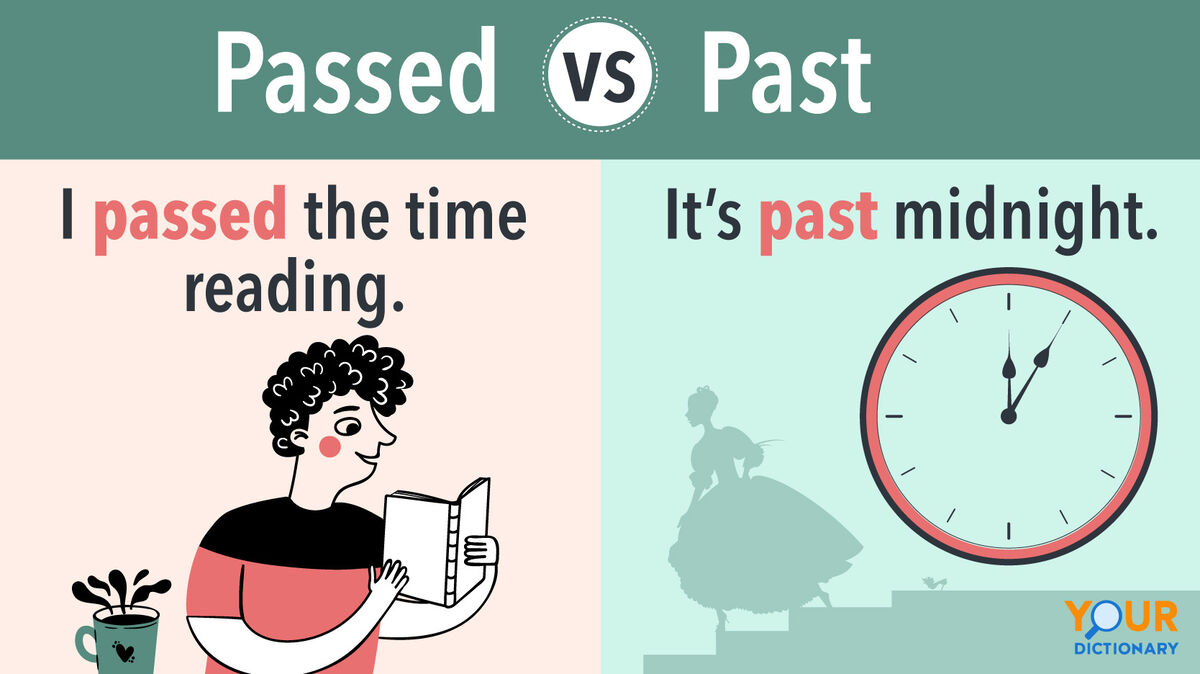
Have you ever written past or passed and second-guessed yourself? Has the time past or passed? Would you say you "past your test" or "passed your test"? Explore the meanings and uses of past and passed with examples.
The Difference Between Passed vs. Past
While passed and past may look and sound similar, the difference between them is actually quite simple.
passed - to go by or beyond something; to proceed
past - in a previous time; no longer existing
Meaning and Usage of Passed
Passed is the past tense form of the verb “to pass.” It can mean to go beyond, forward, proceed, or depart. The term passed can be used to convey the passage of time, movement across space or the action of passing through something.
I passed the time reading. (to occupy time)
The seasons passed quickly. (passage of time)
She accidentally passed the exit. (to go beyond a certain point)
My mother passed on in the middle of the night. (to die)
He passed the glass to me. (movement across space)
The students passed all their exams. (to succeed or advance)
Meaning and Usage of Past
Like passed, past has several uses depending on the part of speech and context.
Part of Speech | Example | Meaning of Past |
adjective | It’s past business hours. | after a certain period |
adverb | He ran past me. | beyond a physical point; to go by |
noun | It’s in the past. | before the present |
preposition | It’s past midnight. | after a certain time |
Spot the Difference Between Past and Passed
Take a look at the use of passed and past in the same context to observe the difference.
Past | Passed |
I drove past the exit. | I passed the exit. |
That time is in the past. | The time has passed. |
I’m past my limit. | I’ve passed my limit. |
Move Past the Confusion
Although it is easy to confuse passed and past, knowing the different meanings and how to use each word will help clear up the confusion. Discover the meanings and uses of other homonyms, words that sound the same but have different meanings and spellings. Some commonly confused homonyms include cite, site and sight or dessert and desert.